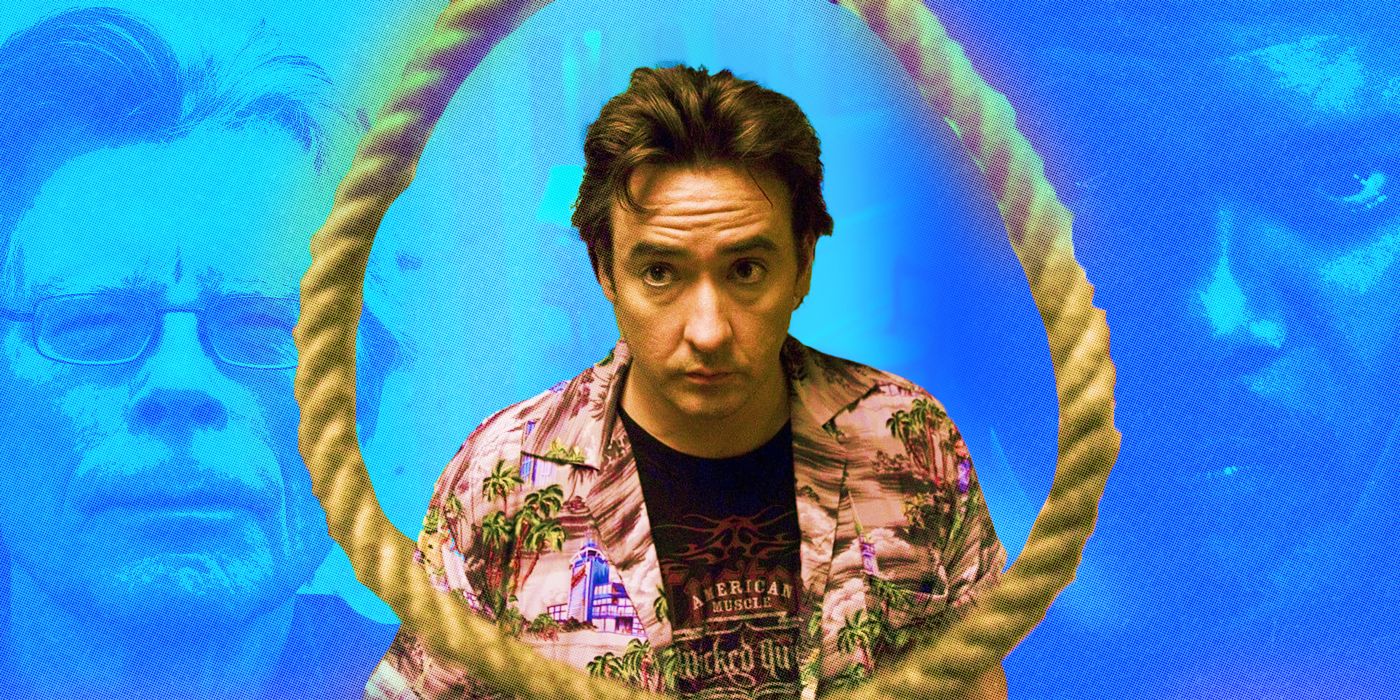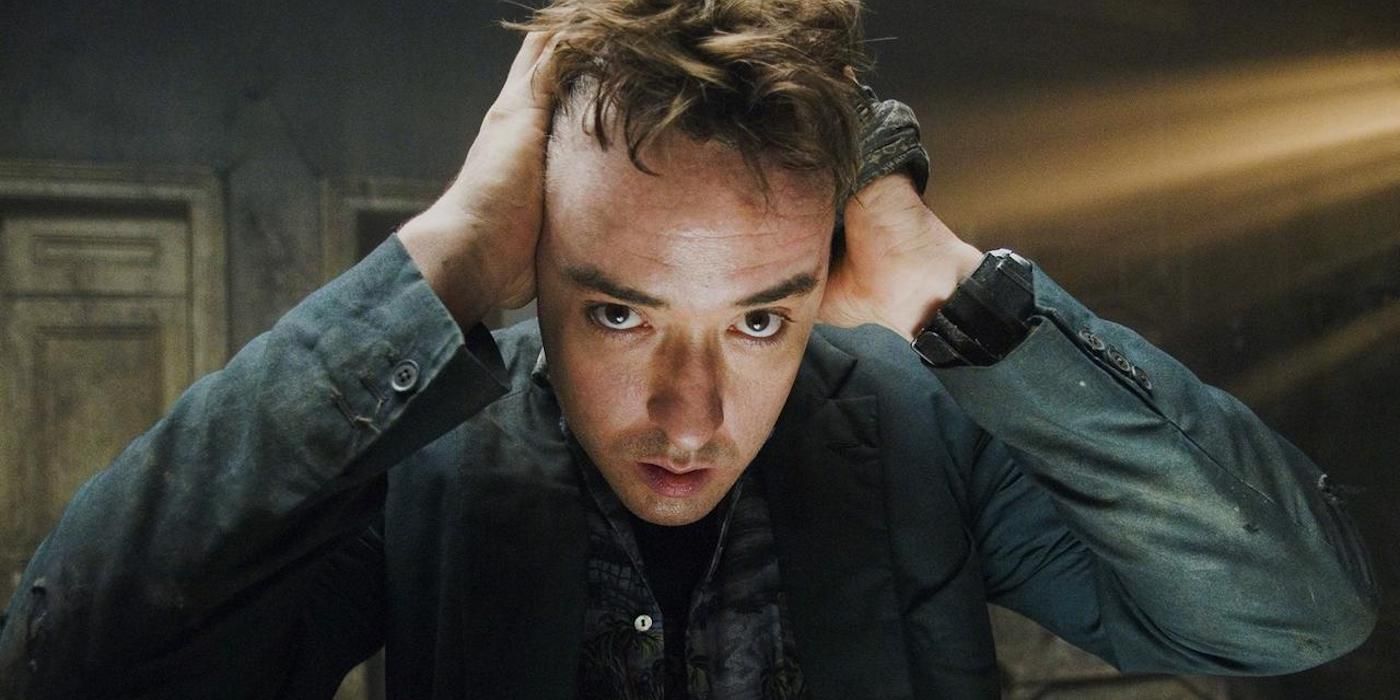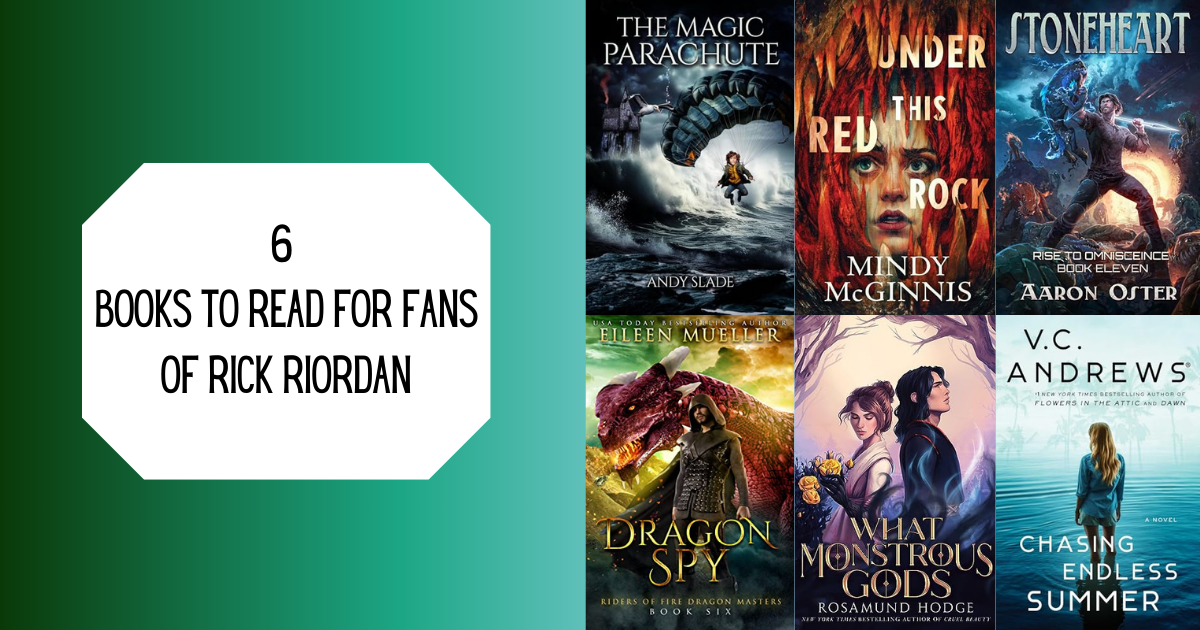The Big Picture
-
1408
remains an underrated horror gem with timeless production, endless scares, and Cusack’s stellar performance. - The psychological journey in
1408
sets it apart from typical ghost stories with a hauntingly evil setting. - Cusack’s transformation in
1408
showcases his acting prowess, adding a sense of reality to the terrifying film.
Nestled away amidst horror films of the past two decades, 1408 remains one of the most underrated horror films of all time. Adapted from a Stephen King story to the big screen by director Mikael Hafstrom, 1408 entails classic elements of thrill and terror that are made unique by the film’s psychological twists and centered misc-en-scene. Despite having been released in 2007, the film has avoided the Hollywood effects of aging and seems like a project that could have been made today. The cinematography, writing, and production are timeless, the scares are endless and the performance given by leading man John Cusack should be considered one of his best. 1408 is the perfect film for those who enjoy the paranormal, the confusing, the thrilling, or even just a well-made movie. So, without further suspense (even though King loves it), here’s why 1408 is an underrated, great horror feature.
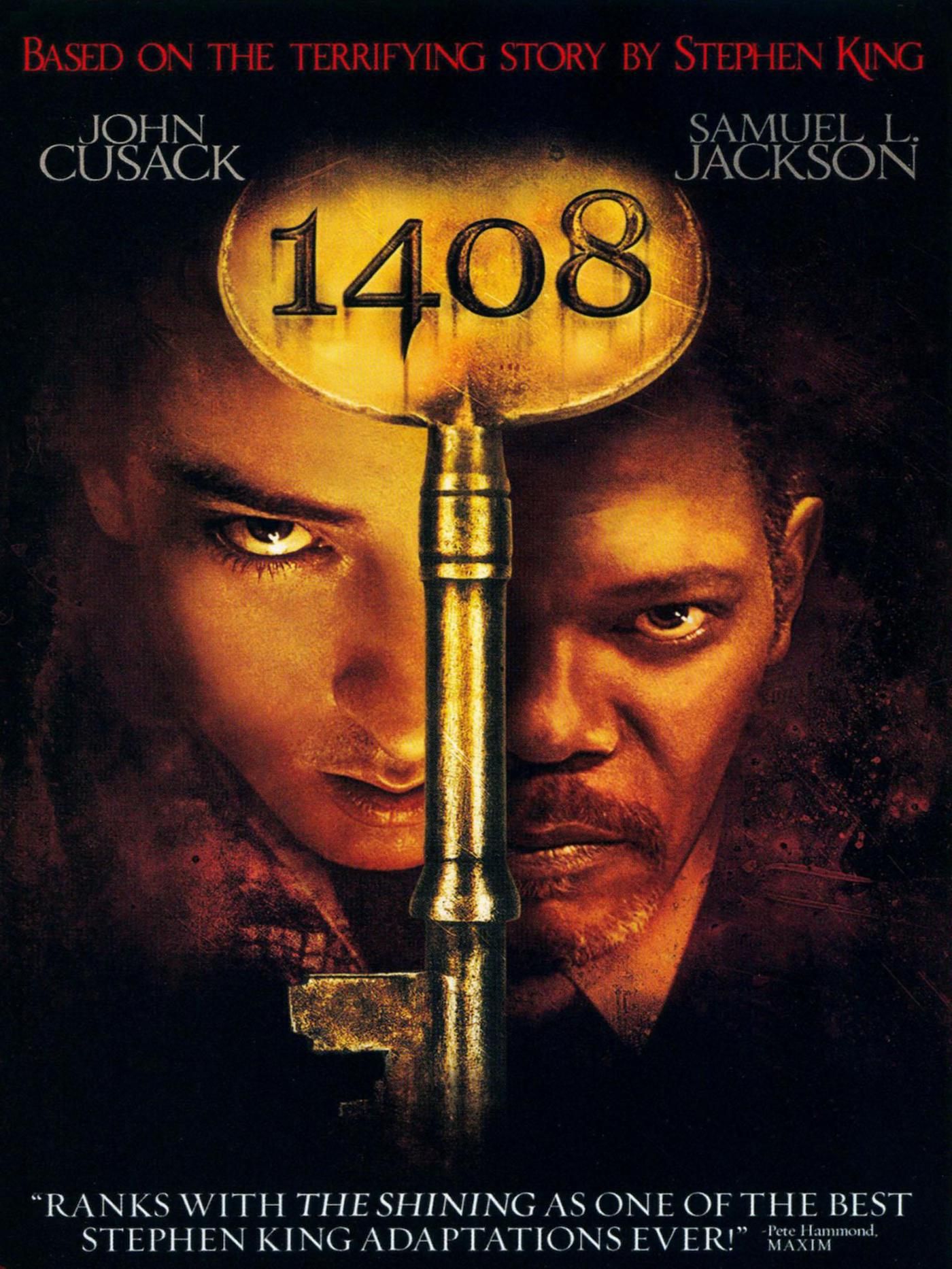
1408
A man who specialises in debunking paranormal occurrences checks into the fabled room 1408 in the Dolphin Hotel. Soon after settling in, he confronts genuine terror.
- Release Date
- June 22, 2007
- Runtime
- 94
- Main Genre
- Horror
- Studio
- Dimension Films
What Is ‘1408’ About?
Hafstrom’s adaptation follows the journey of paranormal writer Mike Enslin, played by Cusack, to New York after receiving a postcard from the Dolphin Hotel with the words “Don’t Enter 1408” scribbled across. With a dwindling writing career and being a skeptic of the paranormal himself, Enslin calls the hotel to book the room hoping to debunk the myth as he usually does and write a chunky chapter for his next book. He’s told, however, that the room is permanently unavailable, and with curiosity soaring, he travels to New York and tries booking the room again at the front counter. Upon arrival, the staff is hesitant around Enslin, and eventually, the hotel manager, Gerald Olin, played by Samuel L. Jackson, invites the writer into his office.
Inside his office, Olin informs Enslin that there have been over 50 deaths in room 1408, both natural and unnatural, and that no one survives more than an hour in the room. Olin pleads with Enslin to stay in a different room and tries desperately to explain to him that 1408 isn’t a gimmicky horror attraction like Enslin’s other ghost locations have been and that the room is seriously dangerous. After a riveting exchange between the two, Enslin demands the room, and under legal obligations as the manager, Olin cannot refuse it to him. The manager leads Enslin up to the 14th floor but doesn’t leave the elevator stating “This is as close as I get to 1408.” The doors close, and Enslin enters the room. And thus, the story begins.
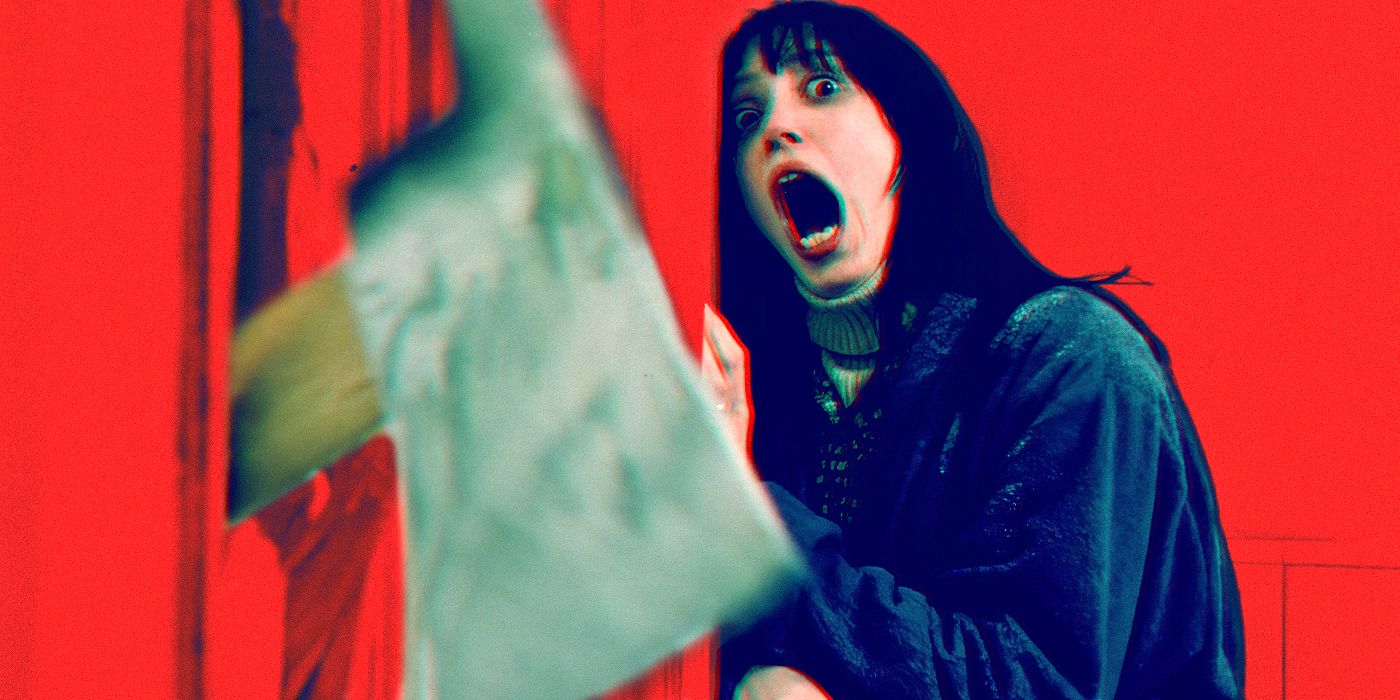
This Is the Most Horrifying Scene From Any Stephen King Adaptation
At night, we can still hear the scratching.
The room opens quietly. Enslin records his thoughts of the room using a tape recorder, and as he walks through the sitting room and into the bedroom and ensuite, he makes cynical comments about the unremarkable character of the room. Enslin, having investigated dozens of supposedly haunted locations only to never experience a haunting, feels that 1408 will be no different. The fact that the room was so difficult to obtain made the whole mystery of 1408 even more appealing to Enslin because it would be such a satisfying win to stay and find that it was nothing more than a cash grab for the hotel. But as the minutes pass and the room seems to awaken in Enslin’s presence, this idea goes straight out of both the room’s windows.
While droning on about the lack of supernatural qualities of the room, Enslin is interrupted by the room’s radio, which begins playing the Carpenters song “We’ve Only Just Begun.” It’s a sudden jump scare, as both Enslin and the audience have almost gotten comfortable in the room. Shortly after, Enslin notices that the bed he has sat on has been remade and the chocolates he’s eaten have been replaced, and leaning into his skepticism, immediately begins running around the room to catch the maid he believes Olin has hired to simulate a haunting. After scouring the room and finding no one, Enslin slightly embraces the idea that he may be experiencing the paranormal — that is until the radio starts a countdown from an hour. From here begins a hellish descent into madness for Enslin, who endures axe-yielding ghosts, a room that distorts time and space, and a past that becomes just as haunting as a demonic room.
What Makes ‘1408’ Different From Other Ghost Stories?
While 1408 may come across as one of many ghost stories set in a hotel or a normally unassuming location, it’s because of that very reason that this film stands out. Hafstrom and Cusack work together to make the setting as striking as possible, and what seems like a hotel room or just another story about spooky ghosts turns out to be a psychological journey through the circles of hell and a deep dive into what makes the human mind race and jump. Room 1408, as Enslin describes, is plain and just about as stereotypical as a hotel room could get. Nothing about the furniture or the layout suggests anything amiss and nothing about the first 20 minutes of the movie does either.
Just as Enslin grows temporarily comfortable in the room due to his own arrogance and skepticism, so does the audience. For a brief moment, we feel as though we can expect what’s to come and audiences start to assume that the rest of the movie will be centered around Enslin being terrorized by a ghoulish phantom that creeps up behind him and moves his luggage around the room. What comes next, however, once the stage is set and the door of the room won’t open, is completely new. There is no dominant, visual force against the main character, and there’s no sad backstory behind it. The room is simply and horrifyingly evil. By making the setting the antagonizing force rather than a single character or the idea of a ghost itself, 1408 makes walls and carpets seem life-threatening, which is hard to do.
‘1408’ Shows What We Love About Stephen King Stories
As the hour ticks on, the room throws more challenges at Enslin. The bedroom window shuts on his hand, apparitions of past victims appear, the thermostat stops working at high heat, and the bedroom television abruptly plays a home video of Enslin, his wife, and daughter, who we come to learn passed away a few years ago. And through all this, we sit glued to our seats trying to understand that the room is capitalizing on Enslin’s traumas and fears. It’s as though the room was able to get a hand inside the character’s mind and begin pulling out all of his cynicism and heartbreaks and force him to live through it again, all the while running for his life inside a small hotel room. The film’s plot unravels like a complicated puzzle, whereby each event and piece of information we learn begins to fit into place.
This is a technique well known across King’s work and a feature of his stories that makes them so enjoyable. There is a reason for everything, and even when the room seems like it’s working chaotically, it actually reads like a well-written horror story. At one point, Enslin decides he’s going to try to escape the room by climbing out the window and shuffling along the banisters to the next room, but when he tries it, the other windows across the hotel disappear, and all that is left is, you guessed it: 1408. The fear that builds inside Enslin grabs a hold of the audience not just because of the horrifying idea of being hundreds of feet up in the air with suddenly nowhere to go, but because he’s completely on his own. And being alone in a room that’s trying to kill you would scare anyone. And therein lies another brilliant feature of the film, which is the one-man show effect that is achieved through Cusack’s stellar performance.
John Cusack Gives One of His Best Performances in ‘1408’
Having worked in Hollywood for decades and experiencing raging success from a young age, Cusack was no stranger to great work. He has stood the test of Hollywood time, and dozens of his films are still beloved across the board. However, for a film that boasts arguably one of his best performances, 1408 is often left out of the line-up. The one-man show effect, where a film is led and performed through one character, is often a hard technique to get right. It requires an actor to have chemistry with themselves and with their surroundings, and that’s no easy feat when there aren’t any other actors to bounce off of or save the scene. Cusack is one of many talented actors who is truly able to make a film feel real. It feels as though there aren’t any cameras or lighting rigs directly in front of him while he delivers his lines, and that’s exactly why his role in 1408 is so good. At the beginning of the film, Cusack portrays Enslin’s character with all the dryness and flat humor we come to understand better towards the end. His work in making Enslin seem likable when the other characters in the story, such as Olin, don’t warm to him leads us to almost trust him when he demands the key to the room.
But when everything begins to go sideways and everything Enslin believes in is quite literally thrown out the window, the audience watches Enslin transform. Portraying a genuine fight or flight response while tackling the idea that the character is skeptical and deeply burdened by his past is a complicated job, but Cusack does it in a way that allows the audience to discover it over time. It would never occur to us watching it beforehand that Enslin struggled with the loss of a child, but once we learn this, Enslin’s attitude and his almost disregard for his own wellbeing start to add up. The psychological toll that the room takes on Enslin is exuded by Cusack, and not in the cliché way where the character cries and begs for mercy, but in the slow-burn, soul-searching way that sees someone scream brutally into a fridge because they think they’re talking to the hotel manager that tried to warn them not to stay in that room. All in all, Cusack’s performance in 1408 truly heightens the authentic and downright terrifying nature of the film and glows with a sense of reality that conjures goosebumps.
When it comes to horror, the choices are endless. The genre is full of some seriously scary and gory films, all of which have great qualities. But for those who crave intimate, psychological, and well-written horror, 1408 delivers. With its Stephen King flare, its Hafstrom movement, and its Cusack narration, this 2007 horror installment provides a twist on the ghost story genre that leaves the audience with a lingering fear and satisfaction. The film was actually given four unique endings, and depending on where and how you watch it, you can experience four very different closings to the film. With much to unpack and enjoy, 1408 is an underrated horror film that King fans and filmgoers alike will enjoy. But remember, it’s just a room. Or is it?
1408 is available to stream on Starz in the U.S.
























































![Key Metrics for Social Media Marketing [Infographic] Key Metrics for Social Media Marketing [Infographic]](https://www.socialmediatoday.com/imgproxy/nP1lliSbrTbUmhFV6RdAz9qJZFvsstq3IG6orLUMMls/g:ce/rs:fit:770:435/bG9jYWw6Ly8vZGl2ZWltYWdlL3NvY2lhbF9tZWRpYV9yb2lfaW5vZ3JhcGhpYzIucG5n.webp)


